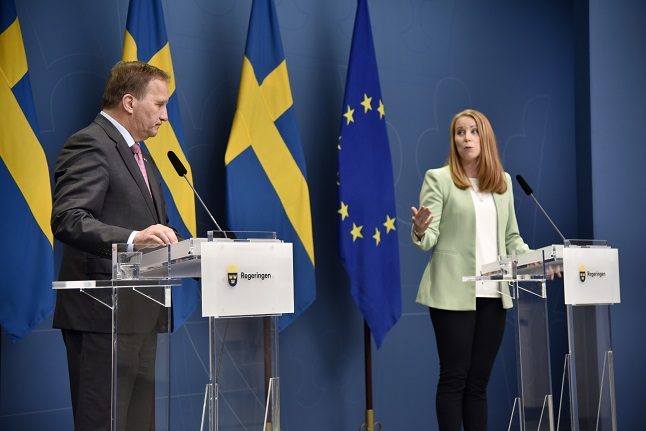What’s happening?
There’s a lot going on in Swedish politik (politics, but also ‘policy’) at the moment.
The regering (government) just lost a misstroendeförklaring (no-confidence vote) which saw a majority of the riksdag (parliament) vote to topple them. That’s created a regeringskris (government crisis).
There are two possibilities for what happens next: we could get a talmansrunda, which has no direct English translation but refers to talks between the talman (speaker of parliament) and partiledare (party leaders), or we could be heading for an extraval (snap election). The word for ‘election’ is val, which also means ‘choice’ and ‘whale’, just to make things extra confusing for Swedish learners.
The current crisis erupted over marknadshyror (market rents), a centre-right policy that the centre-left government reluctantly agreed to look into, but which was a step too far for the Left Party, on whose support the government relies.
What next?
It depends if the statsminister (Prime Minister) chooses to go for an extraval or talmansrunda.
If it’s an extraval, it should take place in September and Swedish citizens over the age of 18 have rösträtt (right to vote) and will be able to rösta (vote). The most recent partisympatiundersökningar (party sympathy surveys) show that a right-wing government would be on track for a knapp majoritet (narrow majority) but it’s very, very close.
If it’s a talmansrunda, the talman will speak to the different partiledare and appoint one of them, who he thinks has a chance at forming a viable government, to sondera (this roughly means ‘to feel/sound out’ and in politics, it refers to chatting to the other leaders to see if they can gather enough support for a government).
Forming a viable government will require some parties to reach a kompromiss (compromise), since the Centre Party, for example, has ruled out samarbete (cooperation) with the Left but also with the far-right.
The parties
First there are the Socialdemokraterna (Social Democrats) and Miljöpartiet (Green Party), who have been running Sweden as a koalitionsregering (coalition government).
They were able to come to power thanks to reaching an agreement with two former members of their opposition, the Centerpartiet (Centre Party) and Liberalerna (Liberals). The agreement where they agreed support in exchange for policy influence is called Januariavtalet (the January Deal), and that makes the Centre and Liberals stödpartier (support parties).
Also usually backing the government is Vänsterpartiet (the Left Party), although it has no formal agreement in place like the Centre and Liberals, so is technically part of the opposition — that’s why it pushed for a vote of no-confidence over one of the points in the Januariavtalet.
On the right side of the political spectrum, Moderaterna (the Moderates) and Kristdemokraterna (Christian Democrats) were formerly part of a four-party coalition with the Centre and Liberals called Alliansen (the Alliance). These parties are often referred to as de borgerliga (the bourgeois – which doesn’t automatically have the same strong connotations in Swedish as in English).
Further to the right are Sverigedemokraterna (Sweden Democrats), a party with roots in the far-right which runs on an anti-immigration platform.
Useful phrases
Vad finns det för alternativ nu? – What alternatives are there now?
Blir det ett extraval? – Will there be a snap election?
Till vems fördel blir ett extraval? – Who would benefit from a snap election?
Kommer Stefan Löfven kunna skapa en regering? – Will Stefan Löfven be able to form a government?
Varför är marknadshyror en så viktig fråga? – Why are market rents such an important issue?
Hur mycket inflytande kommer Vänsterpartiet/Centerpartiet få? – How much influence will the Left Party/Centre Party have?
Vad tror du kommer hända nu? – What do you think will happen next?
And if you find yourself in a political debate and not sure what to say next, you can never go wrong with a drawn out, non-committal njaaa… (well…).




 Please whitelist us to continue reading.
Please whitelist us to continue reading.
Member comments